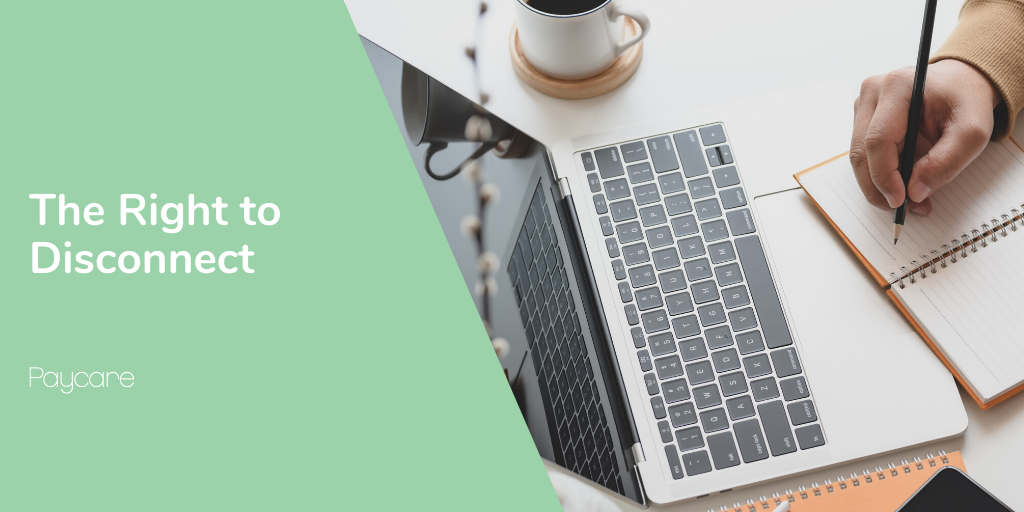The start of lockdown saw millions of UK workers leaving the office for the last time mid-March and getting ready to work from home for the foreseeable. Even when pandemic regulations are fully lifted, and life returns to ‘normal’ – it’s estimated around 60% of us will work from home more regularly1.
But while this shift is to be welcomed from the perspective of allowing more freedom and flexibility – there’s a danger that we’re all forgetting how to disconnect from our work. But don’t worry, our Wellbeing Manager Kerry Mitchell has some advice to help reverse this trend and get us all feeling well and rested!
Kerry says,
“The boundaries between personal and professional are blurring more than ever, and you may already be finding yourself answering emails throughout the evenings and weekends, forgetting to eat lunch because you’re so engrossed in a task, or feeling the mental and physical ill-effects of staring at a screen for the majority of your waking hours.
If that sounds like you, then you’re not alone….
But, you do need to act now to establish new routines and practices that will help you divide your home and work lives, even if your house is now your workplace!
Take a break! 😊
The most important habit everyone working from home needs to bear in mind is the need to take a regular break. UK law allows for a 20-minute uninterrupted break if you’re working more than six hours a day, 11 hours between shifts, and at least one 24-hour period a week where you’re not working. Display Screen Equipment regulations also suggest a screen break of between five and ten minutes, or a change of activity, every hour.
Sitting in one position and staring at a screen for hours on end has so many negative effects such as eye strain, high blood pressure, and musculoskeletal pain – as well the impact on your mood and fatigue levels if you’re working constantly.
Think about when you’re physically in the office: you probably don’t come in and sit at your desk for 8 hours, you’ll stop to chat to a colleague, get up to put the kettle on, and potentially move away from your computer for lunch. And you absolutely should replicate those conditions at home and do whatever it takes to ensure you’re having breaks – set regular alarms on your phone, place your water out of reach, or schedule in a mid-morning walk around the block.
Personal or professional? 💻
As well as setting up a routine, and ensuring your colleagues and clients know when they can speak to you at work and when you’ll be switching off, it’s important to make distinctions between personal and professional.
That might be sticking to core working hours, getting dressed as if you’re going to work and then changing into casual clothes when you’re not working, or setting up a work station in a part of the house and physically getting up and going into another area or room at the end of the day.
Much like you probably have a morning and an evening routine, you could also set up a post-work routine. Schedule a walk, a phone call with a friend, or another activity you’ll enjoy each weekday at 5pm (or whatever time you finish work) to get you to stop and turn off your computer in time rather than working over.
Stuck to your phone? 📱
And do bear in mind that you’re entitled to that time without unnecessary interruptions – so you can absolutely change your setting so work emails don’t come through to your personal phone. There will always be times when emergencies require a call in the evenings or weekends, or a busy schedule means you need to put in some overtime – but this should be the exception not the rule.
There’s no use going on a walk if you’re constantly stopping to check your phone, and the same is true of any of your personal time – it’s simply not the same if you’re constantly occupied with thoughts of work.
If you’ve been home-schooling children this spring, then you’ve probably been allocating specific times for school work and allowing them plenty of snacks, water, and time to just be children outside of those times. Remember you’re a person, not just a job, and you deserve that time and care too!”
***
Kerry B. Mitchell is an experienced Mental Health First Aid Trainer and heads up our Wellbeing and Training Division here at Paycare. You can find out more about how our Paycare Plans and the wellbeing services included* can help keep you focused on your wellbeing in one of our latest blogs: https://www.paycare.org/paycare-blog-for-you/stay-focused-on-personal-health-wellbeing/.
Until next time – stay safe, stay well and take some time for yourself! 😊
Lots of love,
The Paycare Team 🧡
*Please refer to your Policy Documents and Benefit Table to see what’s included in your plan.

